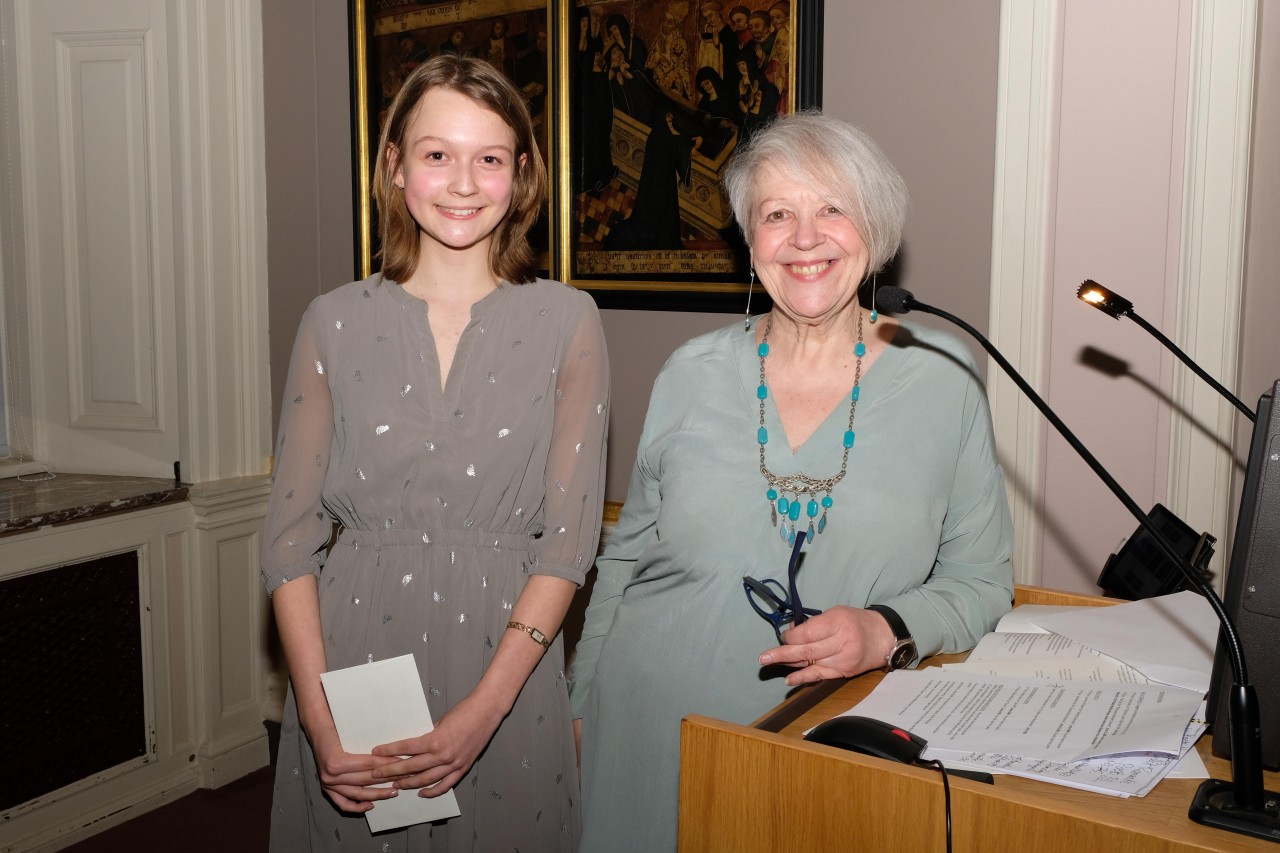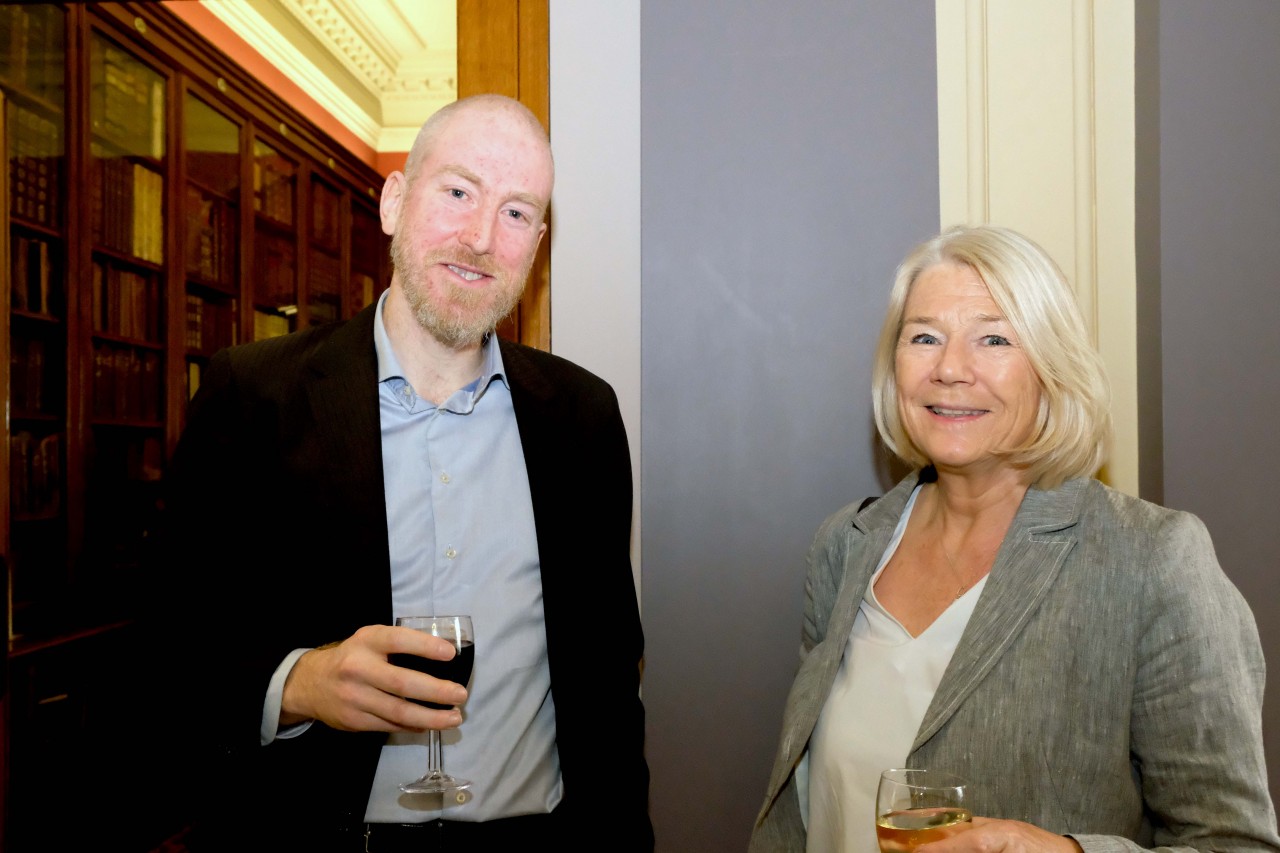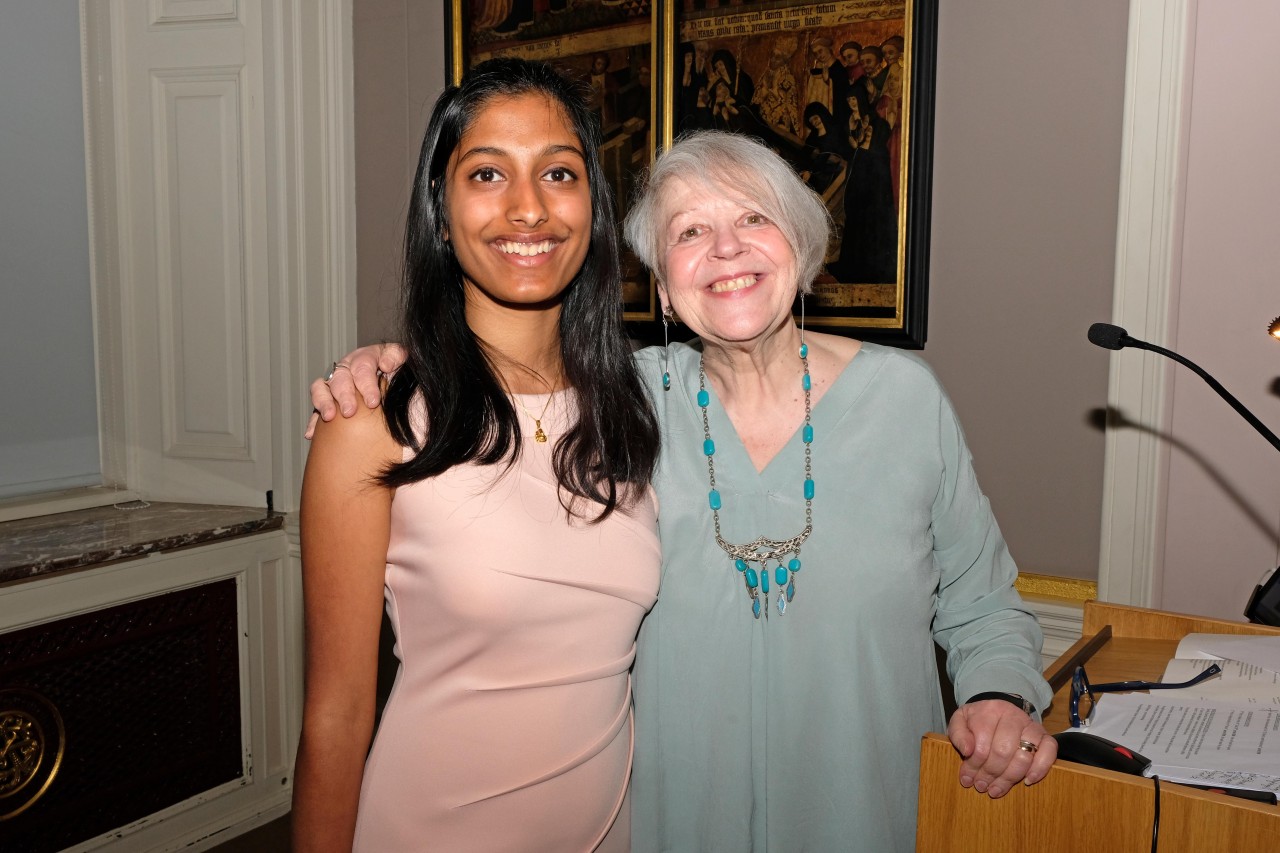The winners of the Keats-Shelley poetry and essay prizes for 2018 were announced on 23 April at a ceremony held, for the second year running, at the Society of Antiquaries in Burlington House, London. The hall was packed with the short-listed poets and essayists, their families, friends and supporters of the Keats Shelley Memorial Association – including a number of eminent writers and poets. As we discovered last year, there is something moving about hearing poetry recited under the gaze of the medieval monarchs whose fine portraits were acquired in 1828, before the National Portrait Gallery came into being. They were joined this year by the odd Byzantine emperor as well.
2018 marks the 200th anniversary of Percy Bysshe Shelley’s powerful hymn to Liberty – Prometheus Unbound – so ‘Liberty’ seemed the perfect subject with which to challenge our poets, both adults and Young Romantics. Fittingly the evening was launched with a ‘Fanfare for Liberty’, performed by two young actors who had already excelled themselves in a performance, in 2017, of Rebel Angel – Angus Graham-Campbell’s play about Keats’s experiences as a medical student. The play, which was performed in the old operating theatre at Guy’s Hospital, was hugely successful, so we were delighted when Jonny Taylor, who was a perfect Keats, and Polly Edsell, who brilliantly conjured up the women in his life, agreed to perform the ‘Fanfare’.
‘Thou art Wisdom’ – ‘Thou art Peace’ – ‘Thou art Love’ - ‘We must be free or die who speak the tongue that Shakespeare wrote…’ Created out of quotations by a host of Romantics, including Mary Shelley, Percy Bysshe Shelley, Keats, William Blake, Lord Byron and Robert Burns, the ‘Fanfare’ reminded us all just how important Freedom is, as well as the extent to which we may be tempted to take it for granted.
Harriet Cullen, chair of the KSMA, then welcomed everyone and introduced our guest judge, Liz Lochhead, winner of the Queen’s Award for Poetry.
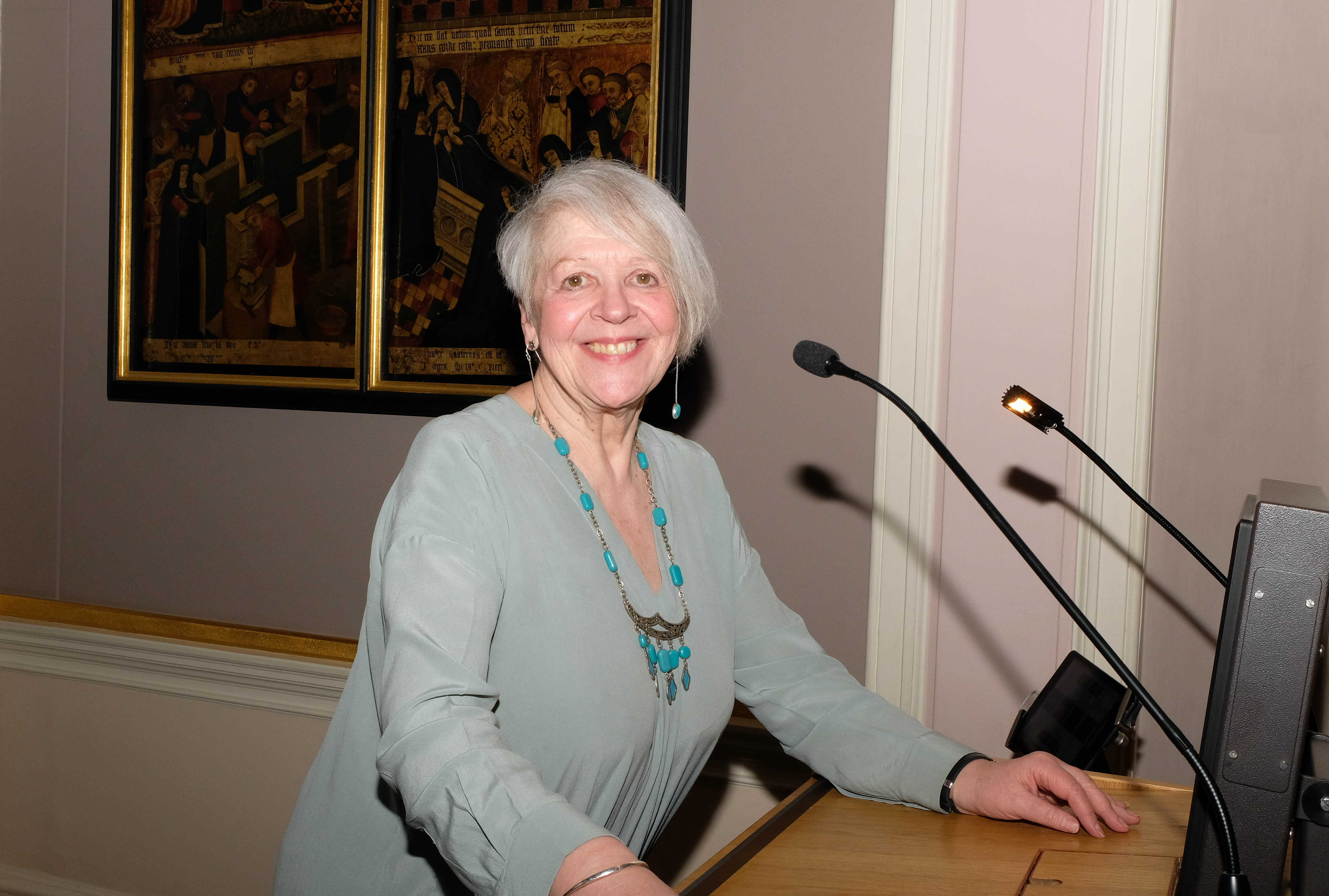
Liz is a wonderful poet and a great performer of her own material and that of others. She also has an enviable talent for imparting her own enthusiasm – often with both grit and wit: ‘You’re stuck writing something until you go “to hell with it, I’ll tell the truth”.’ Carol Ann Duffy has paid tribute to the ‘warm broth of quirky rhythms, streetwise speech patterns, showbiz pizzazz and tender lyricism,’ while her friend Norman McCaig comments: ‘She doesn’t use clichés, she flypes them.’ I looked this up, and it seems to mean ‘turns them inside out’, which is a wonderful way of describing her wickedly inventive use of language. She is also very funny – Giuseppe Albano, Curator of the Keats Shelley House in Rome, likened her to a ‘Scots Victoria Wood’ – to me the best reference ever.
The judges, poets Matthew Sweeney and Jo Shapcott, and essay judges, Professor Sharon Ruston and Professor Simon Bainbridge, had a difficult task. The Awards attracted twice the number of entries received last year, and an appreciable number of these were in the Young Romantics section. They worked valiantly to arrive at the shortlists from which Liz would make her choices, and, inevitably perhaps, these were longer than usual for the poets – ten for the Young Romantics and eleven for the Adult section. There were three short-listed essays in each section.
Liz gave a wonderfully witty and enlightening commentary on the entries in general, and was generous and encouraging to all the winners – enfolding most of them in a warm embrace. Many of the short-listed entrants attended the ceremony in hopes, some having travelled from as far afield as the USA as well as Ireland and Europe, so it was good to see them all recognised and presented with a present to remember the evening by. The winning poem in the Young Romantics section was ‘Storm’ by Allegra Mullen, which beautifully conjures up the way a storm builds and breaks, while the runner-up, Nadia Lines, aged 16, in her poem ‘Cast Off’, envisages becoming something else ‘just for a day’ – both poems economical and imaginative and worthy winners. In the Adult section, the American poet, Laurinda Lind, was the winner with ‘Conscientious Objector’ – a dog’s eye view of domestic violence, while the runner-up was Laurence O’Dwyer, with his vision of a Chile haunted by its history, ‘Avenida Libertador’.
Among the essayists, there was one winner among the Young Romantics, Mine Kovavisarach, whose ‘Of Liberty and Revolutions’ went to the heart of the subject, and two for the Adults, with the first prize going to Tara Lee for ‘Philosophic Numbers Smooth’: Tara will be the first prize winner to benefit from the new Keats-Shelley Prize Fellowship, inaugurated this year, which will take the form of a week’s research and study at the Keats-Shelley House in Rome. The second prize was presented to Clare Jones for ‘Bat, Bat, Come Under My Hat’, which Liz admitted she was already half in love with because of the title.
After the presentation, Liz entertained the audience with a selection of her own poems and her favourites among the Romantics. She spoke movingly about her play Cuba, written in 1997, but set in the middle of the Cuba missile crisis, when, as a schoolgirl she was one of a class of scared young schoolgirls taking turns to read Keats’s ‘La Belle Dame Sans Merci’ and dwelling on spectres of death. She also read ‘Meg Merrilees’, which she first came to at the age of seven, recalling her own Meg Merrilees, a trampy old women who smoked a pipe. Her whole performance was a treat. Following a video I saw later, I just wish we’d asked Liz to sing as well.
The evening ended with the Curator of the Keats Shelley House in Rome, Giuseppe Albano, giving a brief account of the activities of the Museum during the year and plans for the future.
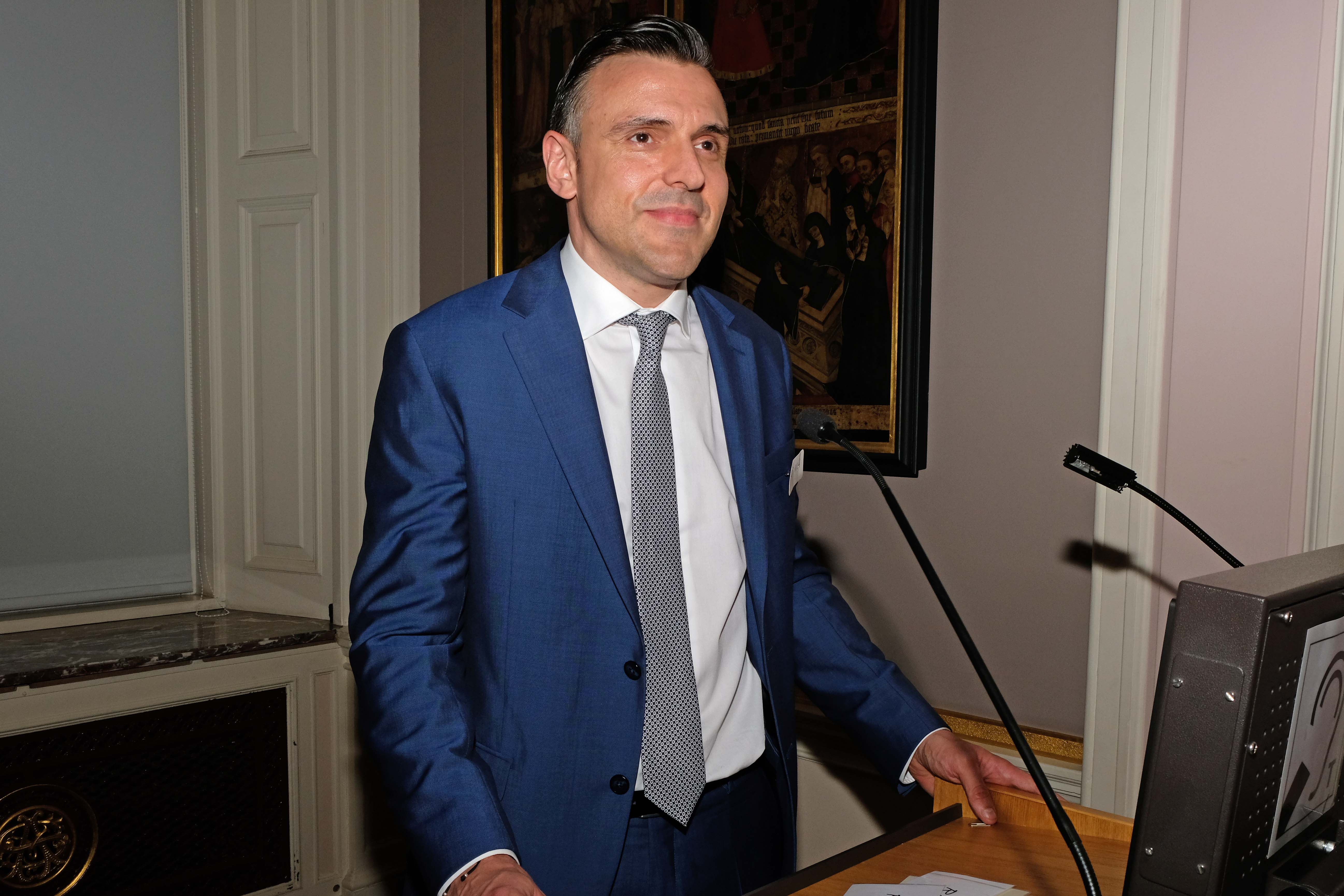
But he also took advantage of the occasion to thank the Chair of the KSMA for her sterling work over the previous twenty-two (!) years. Harriet will be retiring this year after a wonderfully rich tenure presiding over an Association which has gone from strength to strength in that time. It’s no accident that this year marks the twentieth year of the KSMA Awards, which she initiated and which have flourished under her care. We have so much to thank her for, and the fine surroundings of the Society of Antiquaries was the perfect place to do it.
Sue Bradbury
KSMA Trustee
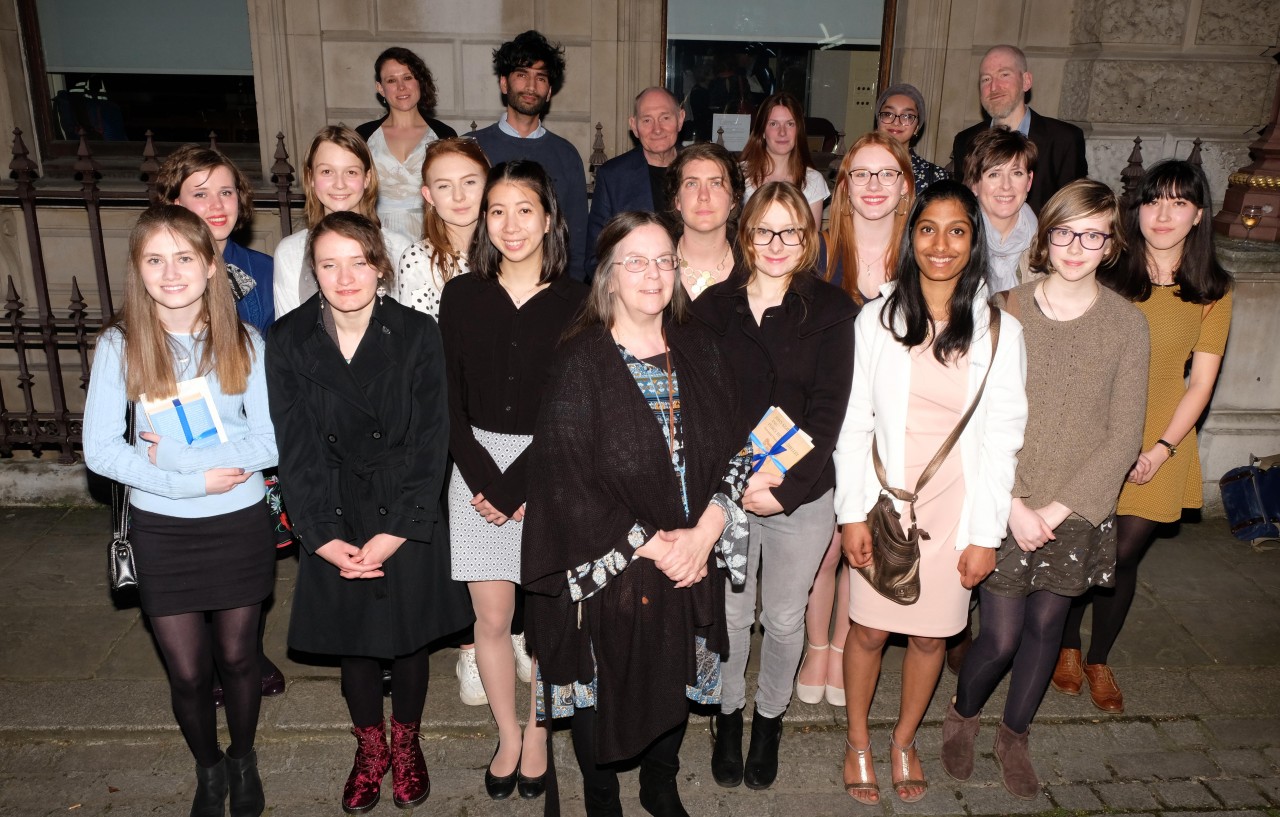

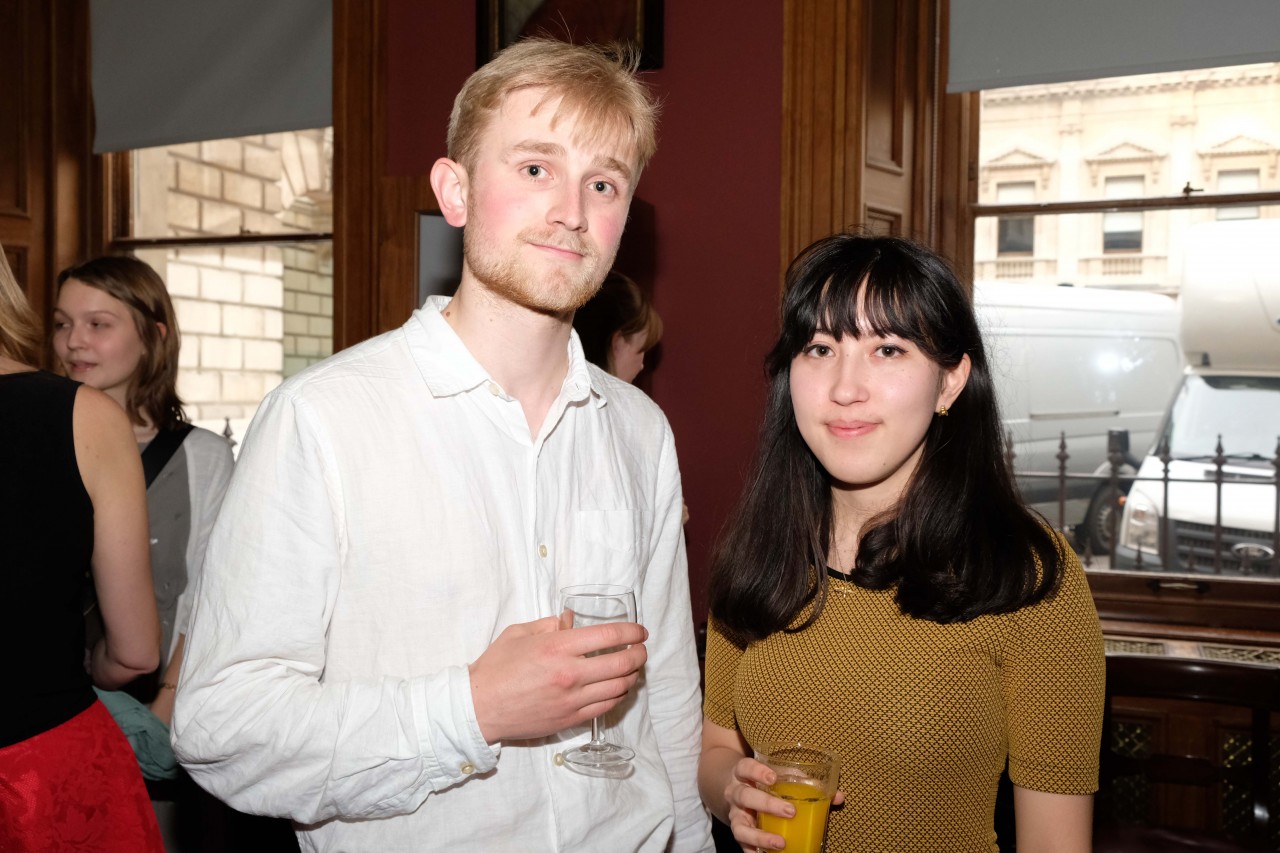
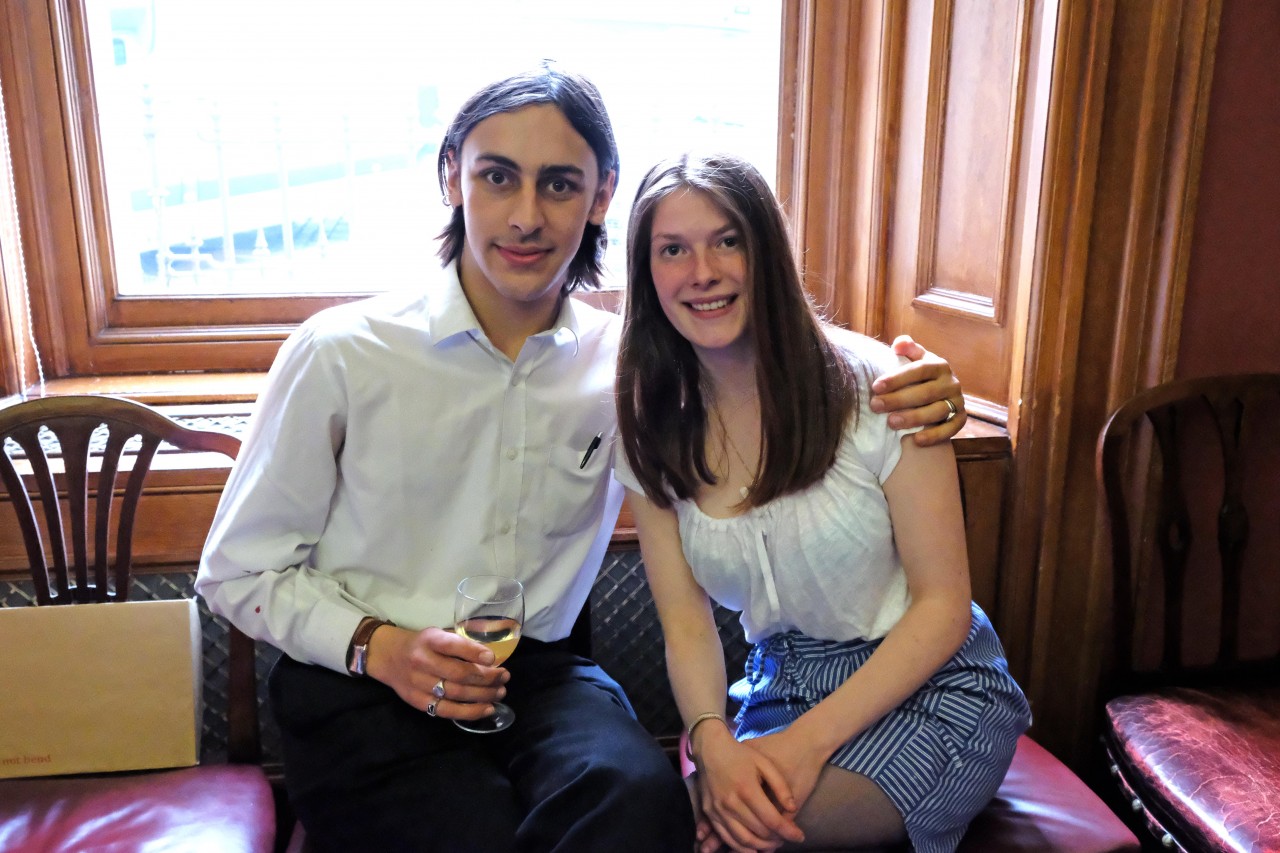
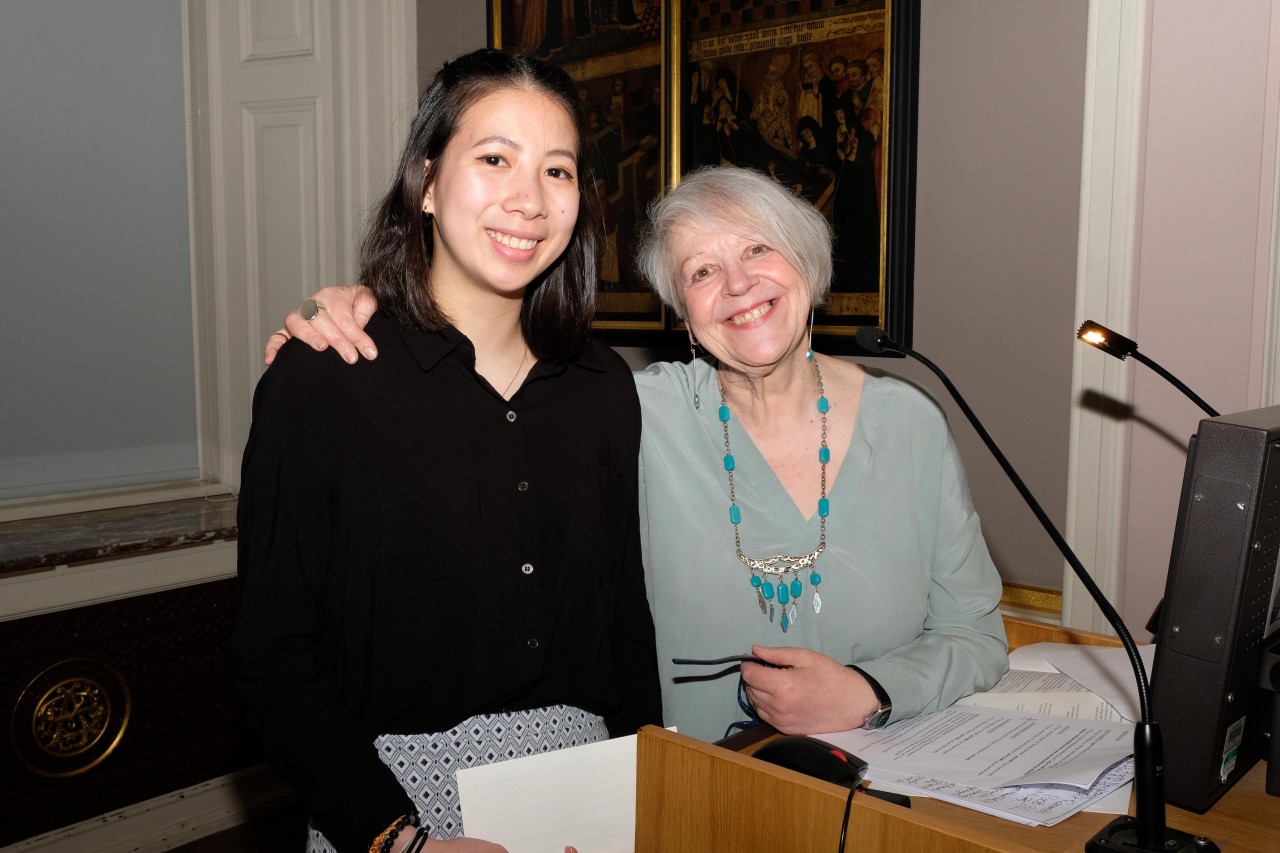
_and_noor_isra_muhammad_(right)_with_friends__halfpage_retina.jpg)
